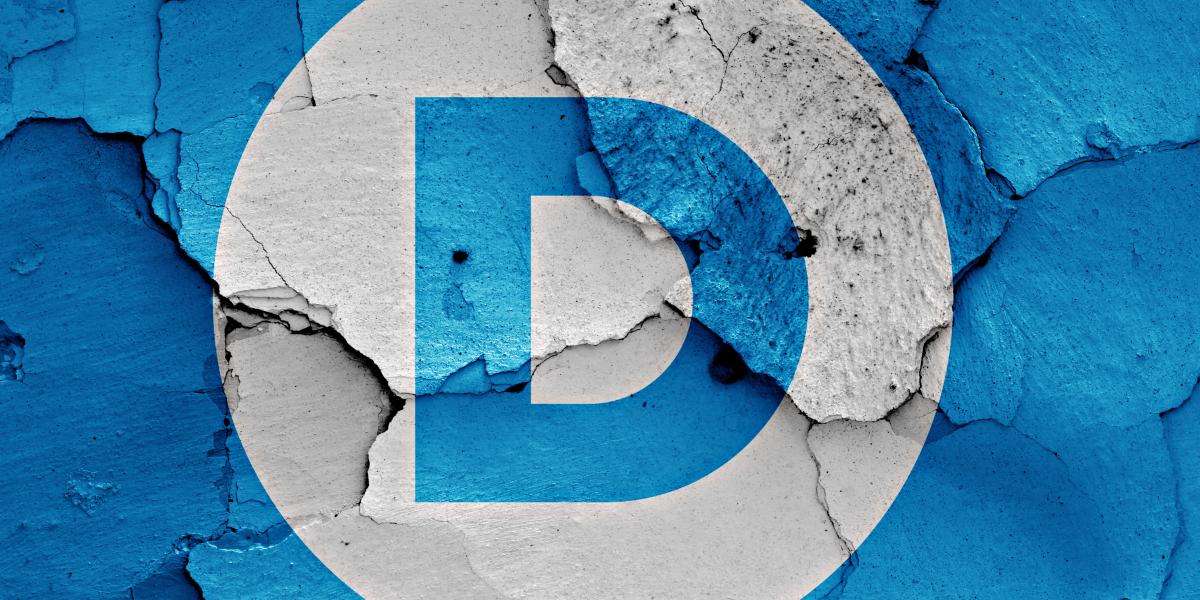


One of the more entertaining political stories of the last few months has been the Democratic Party’s ongoing efforts to determine why it lost the 2024 election and what it needs to do differently to avoid similar failures in the future. After losing the presidency and both houses of Congress, it’s, of course, reasonable for the party to explore what they could have done better. What’s entertaining, though, is how bad they’ve been at it.
The Democratic National Committee is currently conducting an examination of what went wrong, which will completely ignore any and all decisions made by the Biden and Harris campaigns, instead focusing on the messaging of certain outside groups and super PACs. The chaos that came from trying to control Biden—who was clearly suffering from a severe mental decline—which then forced them to pivot to Harris (who was particularly unskilled at campaigning) incredibly late in the election was irrelevant according to party leaders.
This new investigation comes a little over a month after the Democratic Party launched a widely mocked $20 million project to study young men and determine why they’re not voting for Democrats and how they could be better reached. The reason for all the mockery was that it was clear the party had no intention of changing what it stands for to stop or reverse the outflow of young men. Instead, they think that, with the right messaging and a manufactured podcast and influencer ecosystem, they can lead young men back to the Party platform by sprinkling Democratic talking points into conversations about watching sports and lifting weights.
That is not the takeaway of a group that is serious about learning from their failures. They won’t wrestle with the fact that most young American men—especially those who are white and heterosexual—have been raised in a world where people in media and culture are celebrated in direct proportion to how little they resemble them, and that the Democrats are the ones pushing for that. Because that would require an uncomfortable re-examination of the party’s values. Instead, they want to pretend like young men were simply unaware of the Democratic position on the issues.
This speaks to a broader problem that has been plaguing the Democratic Party throughout the Trump years: they are only able or willing to understand Trump’s popularity in terms that are flattering to their own beliefs.
The left-liberals and progressives who make up the Democratic party pride themselves as being the ones who oppose bad things like racism, misogyny, and bigotry and who support good things like fairness, science, and civility. It’s a central part of their identity. So, to them, the only way anyone could possibly disagree with them is if they are racist, misogynistic, anti-science, anti-justice, and opposed to a fair economy.
That kind of simplistic, binary thinking persists on the left, not because it’s accurate, but because it’s comforting. If “the other side” is simply bad, you have no obligation to consider, or even understand, their perspective.
The prevalence of this kind of thinking explains the strategic ineptitude of the Democratic Party over the past few years. Instead of considering why so much of the population was fed up enough with the status quo to support a candidate like Trump, the Democrats decided it would be best to brand themselves as the party committed to returning to that increasingly unpopular status quo. That strategy was at its strongest in 2020, when Americans were exhausted enough with the covid chaos and the nationwide riots to support a familiar face like Joe Biden.
But, even as the pandemic resided, the historic price inflation, chaotic Afghanistan withdrawal, and outbreak of war in Ukraine dispelled the notion that the pre-Trump status quo was a stable or desirable arrangement for most Americans.
And yet, the Democrats have remained fixated on protecting and expanding the very policies that drove people to support an outsider candidate who at least said he would radically change the current system in DC. The fact that he has, so far, fallen so short on those promises is, perhaps, the Democrats’ best hope. Because nothing it’s currently doing suggests the party has the will—or even desire—to put itself on a better path.
